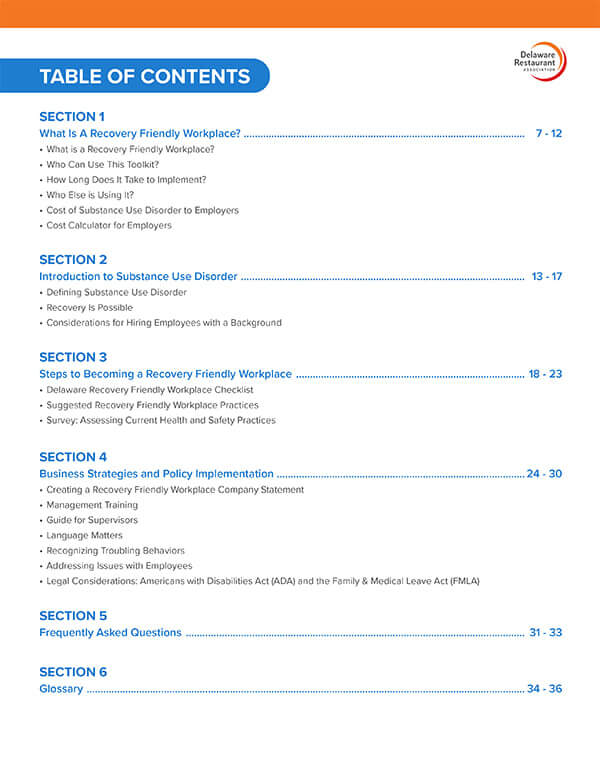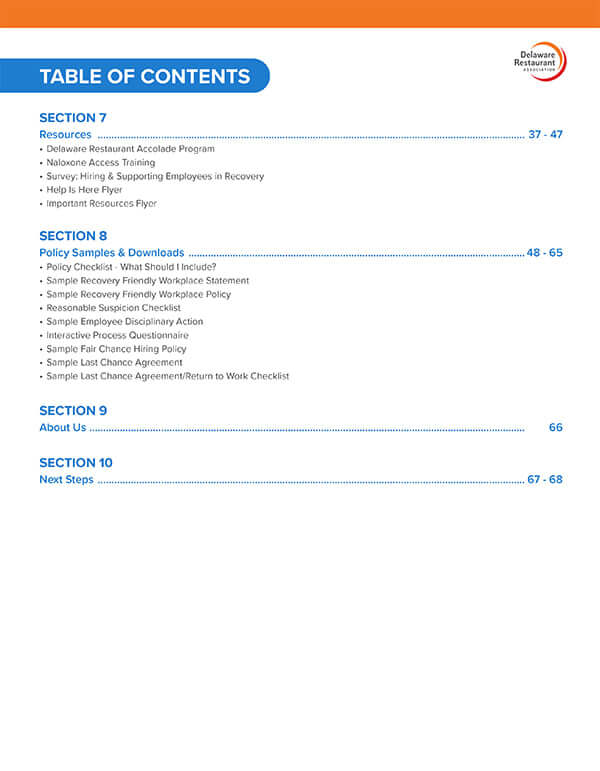Welcome, and thank you for your commitment to building a Recovery-Friendly Workplace (RFW)
Employers play a crucial role in addressing substance use challenges, and implementing recovery-friendly practices can strengthen your business while fostering a safer, more inclusive, and more productive work environment. This toolkit is designed to help you understand and implement effective strategies that support both employees in recovery and the long-term success of your organization.
Our goal is not to distribute another "drug-free" workplace policy, rather, the purpose of this toolkit is to provide you with a comprehensive framework that identifies the steps employers can take to enhance your organizational effectiveness and become a more inclusive workplace which supports all employees, especially those in recovery from substance use disorder (SUD).
Creating a Recovery-Friendly Workplace (RFW) isn't just good practice for supporting workers-it's a smart business decision. Employers who support employees in recovery benefit from a healthier, more engaged, and more stable workforce. RFWs help attract dedicated talent, reduce absenteeism, and enhance workplace culture while improving productivity and cost savings. The Recovery Friendly Workplace initiative encourages healthy and safe working environments where employers, employees, and communities can collaborate to create positive change, eliminate stigma, and support recovery.
Interested in learning more about how becoming a Recovery Friendly Workplace can save your company money on insurance premiums?
The Delaware Insurance Commissioner’s Office, in coordination with the Delaware Compensation Rating Bureau, offers Delaware employers an opportunity to lower workers’ compensation insurance premiums by participating in the Delaware Workplace Safety Program.
Businesses may earn discounts up to 19% by providing and maintaining a safe place to work.
Since the program’s inception in 1989, employers have saved millions of dollars in premiums,
and more importantly, have enhanced the safety and health of their employees.
Questions about becoming a Recovery Friendly Workplace,
or earning your Workplace Safety Credit?
Contact admin@delawarerestaurant.org or call 302.738.2545


